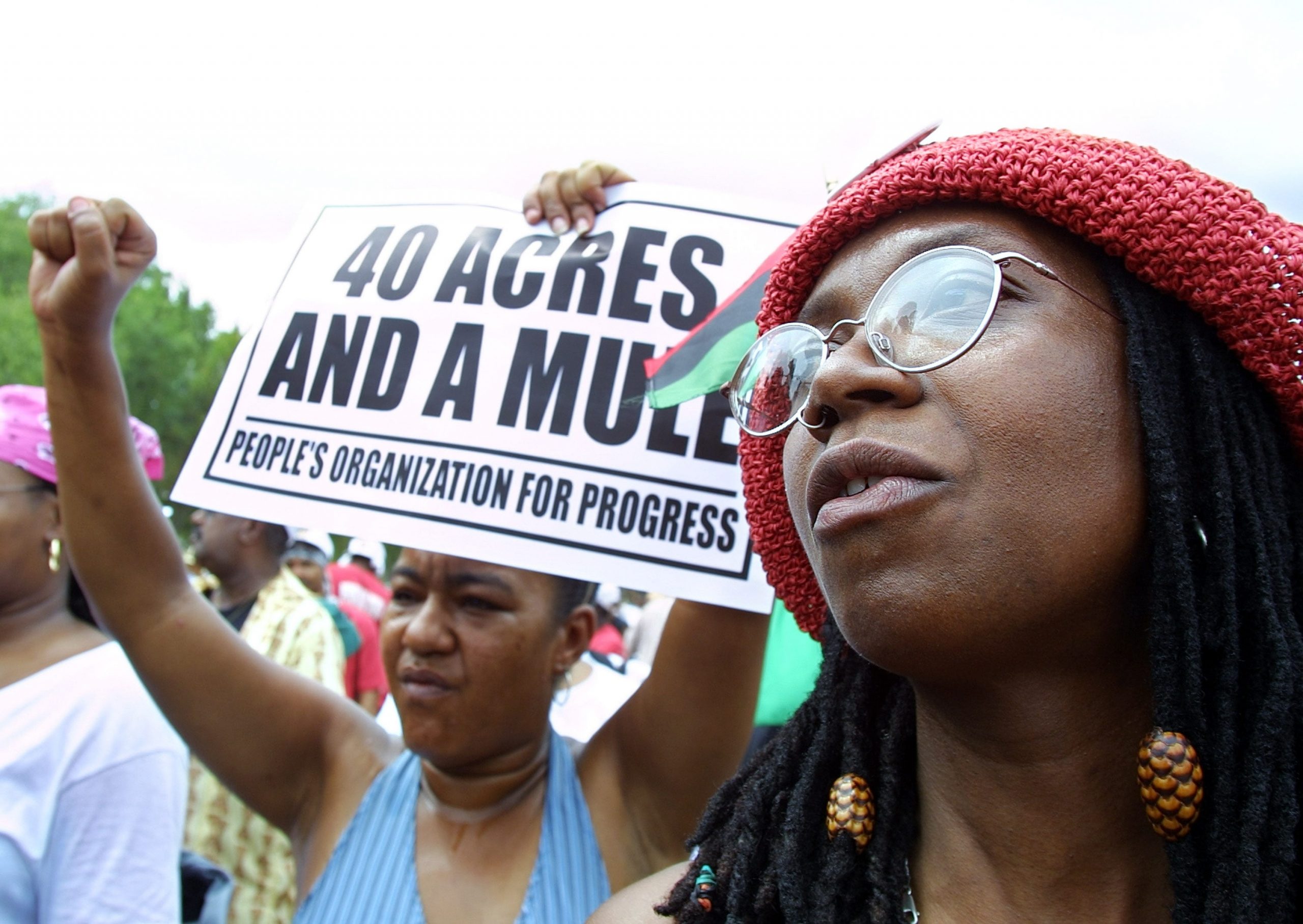
Manny Ceneta/Stringer/Getty Images
- Evanston, Illinois, will spend $400,000 on housing and mortgage assistance for Black residents.
- The city passed a measure to spend $10 million in reparations in the summer of 2019.
- The reparations measure is the first of its kind in the US.
- See more stories on Insider's business page.
A Chicago suburb has begun determining where to spend the unprecedented $10 million it committed to reparations for Black residents in the area last year.
Evanston, Illinois, home of Northwestern University and 74,000 residents, voted Monday night to spend $400,000 of the funds on housing and mortgage assistance for Black residents whose ancestors experienced discrimination such as redlining.
The measure is "focused on preserving, stabilizing, and increasing homeownership, which builds intergenerational wealth among Black/African-American residents," The City Council meeting agenda said. The resolution passed 8-1, according to a press release from the city.
Evanston Mayor Stephen Hagerty and council member Robin Rue Simmons, who chairs the reparations committee, did not respond to Insider's request for comment on the matter.
"While we acknowledge we have a long way to go to repair all of the damages done by racism, we also know this program will make a real and lasting difference in the lives of some of those harmed by past injustices, and will set the stage for additional reparative measures in the future," Simmons said in a press release,
Read more: Joe Biden promises to fix discrimination in housing. Here are 3 ways he plans to tackle it.
In the summer of 2019, the city passed a resolution to spend $10 million in reparations for Black residents " to address the historical wealth and opportunity gaps that African American/Black residents of Evanston experienced." The city's reparations are the first in the US, according to Axios.
The city is using revenue from a local cannabis tax to fund the measure, according to its website. The council created a subcommittee that would determine how to spend the funds, and housing was at the top of the list.
The national homeownership rate for Black families is 44%, while it is 73.7% for white families. And the COVID-19 pandemic has only exacerbated that real estate wealth gap. As for income, the average white family has a net worth 10 times that of an average Black family, according to the Brookings Institution.
Other organizations have been looking to make reparations to Black Americans as well. Last week, the Jesuit conference of priests said it would raise $100 million to help descendants of enslaved people it once claimed to own -- the Roman Catholic Church's biggest effort ever to make amends, The New York Times reported.
One study determined the US Government owes Black Americans $12 trillion in reparations for the broken promise of "40 acres and a mule" after slavery was abolished.
Amid protests against racial inequality and police brutality over the summer, companies, such as banks, faced demands to pay reparations for perpetuating the racial wealth gap through home loans and other methods. Others said that white and non-Black people can make reparations on their own without a Congressional bill.
Dit artikel is oorspronkelijk verschenen op z24.nl
